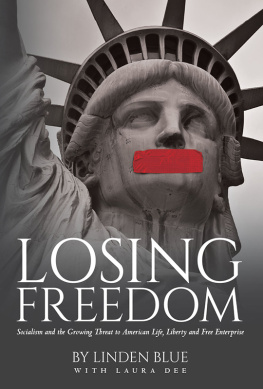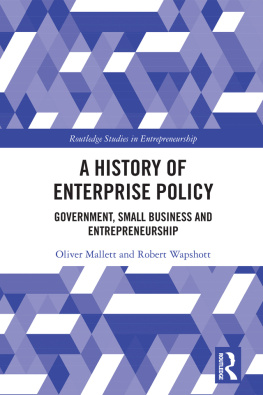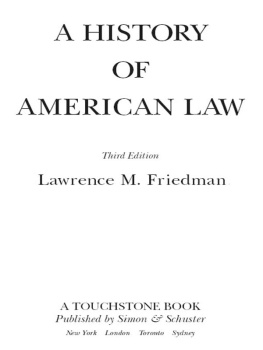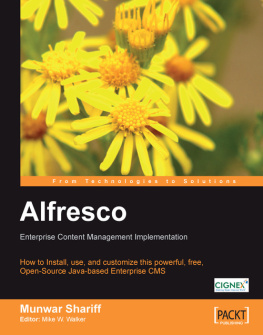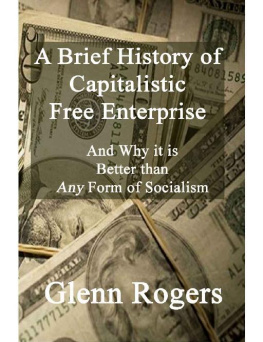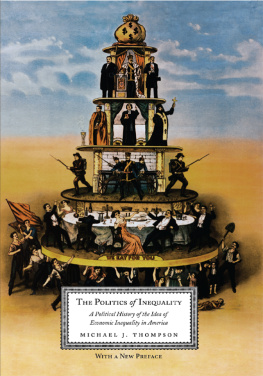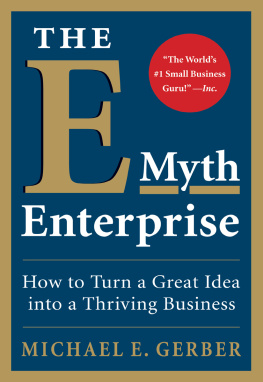FREE ENTERPRISE
LAWRENCE B. GLICKMAN
Free
Enterprise
AN AMERICAN HISTORY

Published with assistance from the Louis Stern Memorial Fund.
Copyright 2019 by Lawrence B. Glickman.
All rights reserved.
This book may not be reproduced, in whole or in part, including illustrations, in any form (beyond that copying permitted by Sections 107 and 108 of the U.S. Copyright Law and except by reviewers for the public press), without written permission from the publishers.
Yale University Press books may be purchased in quantity for educational, business, or promotional use. For information, please e-mail (U.K. office).
Set in Times Roman type by Integrated Publishing Solutions,
Grand Rapids, Michigan.
Printed in the United States of America.
Library of Congress Control Number: 2019931295
ISBN 978-0-300-23825-9 (hardcover : alk. paper)
A catalogue record for this book is available from the British Library.
This paper meets the requirements of ANSI/NISO Z39.48-1992
(Permanence of Paper).
10 9 8 7 6 5 4 3 2 1
To Jill Frank, Sandra Glickman, and Ronald Glickman
CONTENTS
ACKNOWLEDGMENTS
IN THE ESSAY I, PENCIL (the subject of ), Leonard Read speaks with awe of the pencils innumerable antecedents. As with Reads pencil, behind this book is an impossibly long line of people who have helped bring the project to fruition, and I am extremely grateful to them all. Although it is, to quote Read, impossible for me to name and explain all of my antecedents, I would like to credit some small fraction of the people and institutions that made this book possible.
Id like to start with the historians who inspired me. I would not have thought to write this book if it were not for the intriguing mentions of free enterprise in the works of Angus Burgin, Nathan Connolly, Darren Dochuk, Elizabeth Fones-Wolf, Howell John Harris, Katherine Rye Jewell, Kevin M. Kruse, Bethany Moreton, Kathryn S. Olmstead, Kim Phillips-Fein, Wendy L. Wall, and many others cited in the endnotes. Thanks also to the dozens of librarians and archivists who helped me along the way, with a special shout-out to Lucas R. Clawson, the reference archivist at the Hagley Museum and Library who helped me during my research visits and patiently responded to my many email queries. I am also tremendously grateful to the extraordinary librarians at Cornell, including Virginia Cole, Lynn Thitchenor, and especially Heather Furnas, who went way above and beyond the call of duty many times, doggedly tracking down obscure sources that Id given up on ever finding. Many other scholars generously answered my queries, shared information with me, and/or agreed to write letters on my behalf, including Leon Fink, Eric Foner, Gary Gerstle, Howell John Harris, Richard John, the late Ann Johnson, Michael Kazin, Pamela Walker Laird, Sue Levine, Nelson Lichtenstein, Noam Maggor, Heather Cox Richardson, Daniel T. Rodgers, Sam Rosenfeld, David Stebenne, Benjamin Waterhouse, Sean Wilentz, and Kyle Williams.
I began this book as a faculty member at the University of South Carolina and completed it at Cornell University, where I have taught since 2014. At both institutions, Ive been extremely fortunate to have supportive, friendly, and brilliant colleagues. At South Carolina, Id like to thank Lacy Ford, my chair, and the former dean, Mary Ann Fitzpatrick, who provided much-appreciated support as I was launching the research. Thanks also to three excellent (now former) graduate students, Laura Foxworth, Robert Greene, and Caroline Peyton, who provided superb research assistance. Derek K. OLeary did me a huge favor by scanning key articles from the San Francisco News. At Cornell, I am grateful to my chairs, Barry Strauss and Sandra Greene, and to the dean, Gretchen Ritter, who hired me. I am especially indebted to the extraordinary generosity of Stephen and Evalyn Milman, who fund the endowed chair that I have held since 2016. Thanks also to colleagues and students who have participated in the History of Capitalism Initiative at Cornell, and to all those who attended our conferences in 2014 and 2016 and our reading group and colloquia. Ed Baptist, Jefferson Cowie, and Louis Hyman invited me to be a part of this group when I arrived at Cornell, and it has opened a new world of scholarly and personal connections. My former colleague Victor Seow co-taught a graduate course with me on the comparative history of capitalism, and he and the students in that classfrom disciplines as varied as anthropology, comparative literature, government, history, and science and technology studiestaught me a great deal in the process. Although I havent been able to attend often, Ive been motivated by the members of Historians Are Writers! at Cornell, who once even inspired me to compose a poem about the writing of this book.
I have been fortunate to present parts of this book at a number of fantastic conferences and seminars where I benefited from extremely helpful feedback. Special thanks to Nelson Lichtenstein, who invited me to two conferences at UCSanta Barbara; the first, in 2011, provided impetus for me to conceptualize this book. I found the 2015 Beyond the New Deal Order conference extremely inspiring, and I am grateful to all of the attendees, especially K. Sabeel Rahman, who offered helpful comments on my paper. I was lucky to present at the Newberry Library Seminar in the History of Capitalism at an early stage in the writing of this book, and I thank Leon Fink and Jeff Sklansky for the opportunity and the feedback. Thanks to Kevin Kruse and Julian Zelizer for the invitation to present at the Princeton University Political History Seminar, where Stephen Macedo offered helpful suggestions as commenter. A 2014 session at the Organization of American Historians on the meaning of free enterprise with Nathan Connolly, Louis Hyman, and Wendy Wall helped me think about alternative perceptions of the concept that I thought I understood. Thanks to Holly Case, who invited me to speak at the Cornell University History Department Colloquium shortly after I arrived, and to all those who braved the (what seemed to me then as an Ithaca newbie) bitter cold that evening to attend and discuss. Richard John, who invited me to participate in a plenary session at the 2017 Business History Conference, helped me think about ways to frame this book, and also generously sent me leads when he found them. I am grateful to Jefferson Cowie for inviting me to the Vanderbilt University American History Seminar and for inspiring me as a historian and encouraging me as a friend. At Vandy, I got extraordinarily helpful feedback from Brandon Byrd, Heath Carter, Sarah Igo, Paul Kramer, Daniel Scharfstein, Ganesh Sitaraman, and the bonus guests: my old friends Ann Powers and Eric Weisbard. At the Society for U.S. Intellectual History conference in 2015, I learned a lot from my co-panelists, Angus Burgin and Andrina Tran, the commenter Elizabeth Tandy Shermer, and members of the audience, especially Andrew Seal. Attendees at the Johns Hopkins Institute Seminar provided helpful feedback on my first iteration of the books introduction. Thanks to Burgin and Louis Galambos for the invitation and to Christy Ford Chapin for encouragement and constructive criticism.
I was fortunate to be able to publish essays on issues related to this book for a broad public audience in some amazing outlets, including Aeon, Bloomberg View, Boston Review, Process: A Blog for American History, and the blog of the Society for U.S. Intellectual History. I am thankful for permission to reproduce here some material that appeared in these periodicals in earlier form. Thanks also to my editors, Andrew Hartman, Sam Haselby, Colin Kinniburgh, Avni Majithia-Sejpal, Adam McGee, Stephen Mihm, Andrew Seal, and Jonathan D. Warner, for helping me clarify my thoughts.
Next page

